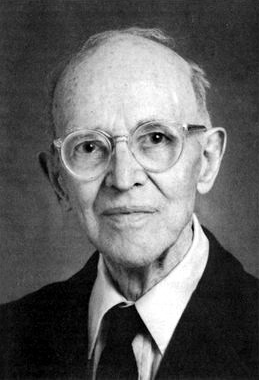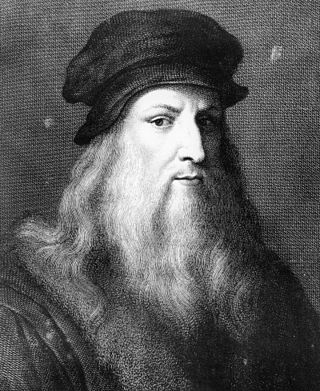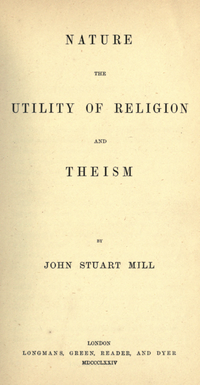The argument from morality is an argument for the existence of God. Arguments from morality tend to be based on moral normativity or moral order. Arguments from moral normativity observe some aspect of morality and argue that God is the best or only explanation for this, concluding that God must exist. Arguments from moral order are based on the asserted need for moral order to exist in the universe. They claim that, for this moral order to exist, God must exist to support it. The argument from morality is noteworthy in that one cannot evaluate the soundness of the argument without attending to almost every important philosophical issue in meta-ethics.
Henotheism is the worship of a single, supreme god that does not deny the existence or possible existence of other deities that may be worshipped. Friedrich Schelling (1775–1854) coined the word, and Friedrich Welcker (1784–1868) used it to depict primitive monotheism among ancient Greeks.
Philosophy of religion is "the philosophical examination of the central themes and concepts involved in religious traditions". Philosophical discussions on such topics date from ancient times, and appear in the earliest known texts concerning philosophy. The field is related to many other branches of philosophy, including metaphysics, epistemology, logic and ethics.

Panentheism is the belief that the divine intersects every part of the universe and also extends beyond space and time. The term was coined by the German philosopher Karl Krause in 1828 to distinguish the ideas of Georg Wilhelm Friedrich Hegel (1770–1831) and Friedrich Wilhelm Joseph Schelling (1775–1854) about the relation of God and the universe from the supposed pantheism of Baruch Spinoza. Unlike pantheism, which holds that the divine and the universe are identical, panentheism maintains an ontological distinction between the divine and the non-divine and the significance of both.

Theism is broadly defined as the belief in the existence of at least one deity. In common parlance, or when contrasted with deism, the term often describes the philosophical conception of God that is found in classical theism—or conception found in monotheism—or gods found in polytheistic religions—or a belief in God or gods without the rejection of revelation as is characteristic of deism.
In ethical philosophy, utilitarianism is a family of normative ethical theories that prescribe actions that maximize happiness and well-being for the affected individuals. In other words, utilitarian ideas encourage actions that ensure the greatest good for the greatest number. Although different varieties of utilitarianism admit different characterizations, the basic idea behind all of them is, in some sense, to maximize utility, which is often defined in terms of well-being or related concepts. For instance, Jeremy Bentham, the founder of utilitarianism, described utility thus:
That property in any object, whereby it tends to produce benefit, advantage, pleasure, good, or happiness ... [or] to prevent the happening of mischief, pain, evil, or unhappiness to the party whose interest is considered.

Supernatural refers to phenomena or entities that are beyond the laws of nature. The term is derived from Medieval Latin supernaturalis, from Latin super- + natura (nature). Although the corollary term "nature" has had multiple meanings since the ancient world, the term "supernatural" emerged in the Middle Ages and did not exist in the ancient world.

Sir Anthony John Patrick Kenny is a British philosopher whose interests lie in the philosophy of mind, ancient and scholastic philosophy, the philosophy of religion, and the philosophy of Wittgenstein of whose literary estate he is an executor. With Peter Geach, he has made a significant contribution to analytical Thomism, a movement whose aim is to present the thought of St. Thomas Aquinas in the style of analytic philosophy. He is a former president of the British Academy and the Royal Institute of Philosophy.

Charles Hartshorne was an American philosopher who concentrated primarily on the philosophy of religion and metaphysics, but also contributed to ornithology. He developed the neoclassical idea of God and produced a modal proof of the existence of God that was a development of Anselm of Canterbury's ontological argument. Hartshorne is also noted for developing Alfred North Whitehead's process philosophy into process theology.
The existence of God is a subject of debate in theology and the philosophy of religion. A wide variety of arguments for and against the existence of God can be categorized as logical, empirical, metaphysical, subjective or scientific. In philosophical terms, the question of the existence of God involves the disciplines of epistemology and ontology and the theory of value.
Metaphysical naturalism is a philosophical worldview which holds that there is nothing but natural elements, principles, and relations of the kind studied by the natural sciences. Methodological naturalism is a philosophical basis for science, for which metaphysical naturalism provides only one possible ontological foundation. Broadly, the corresponding theological perspective is religious naturalism or spiritual naturalism. More specifically, metaphysical naturalism rejects the supernatural concepts and explanations that are part of many religions.

In monotheistic belief systems, God is usually viewed as the supreme being, creator, and principal object of faith. In polytheistic belief systems, a god is "a spirit or being believed to have created, or for controlling some part of the universe or life, for which such a deity is often worshipped". Belief in the existence of at least one god is called theism.
Paul Robert Draper is an American philosopher, most known for his work in the philosophy of religion. His work on the evidential argument from evil has been widely influential. He is currently a professor at Purdue University. He is co-editor of topics in the philosophy of religion for the Stanford Encyclopedia of Philosophy.
In the philosophy of religion and theology, post-monotheism is a term covering a range of different meanings that nonetheless share concern for the status of faith and religious experience in the modern or post-modern era. There is no one originator for the term. Rather, it has independently appeared in the writings of several intellectuals on the Internet and in print. Its most notable use has been in the poetry of Arab Israeli author Nidaa Khoury, and as a label for a "new sensibility" or theological approach proposed by the Islamic historian Christopher Schwartz.

Spiritual naturalism, or naturalistic spirituality combines a naturalist philosophy with spirituality. Spiritual naturalism may have first been proposed by Joris-Karl Huysmans in 1895 in his book En Route.
Coming into prominence as a writer during the 1870s, Huysmans quickly established himself among a rising group of writers, the so-called Naturalist school, of whom Émile Zola was the acknowledged head...With Là-bas (1891), a novel which reflected the aesthetics of the spiritualist revival and the contemporary interest in the occult, Huysmans formulated for the first time an aesthetic theory which sought to synthesize the mundane and the transcendent: "spiritual Naturalism".

Philosophical theism is the belief that the Supreme Being exists independent of the teaching or revelation of any particular religion. It represents belief in God entirely without doctrine, except for that which can be discerned by reason and the contemplation of natural laws. Some philosophical theists are persuaded of God's existence by philosophical arguments, while others consider themselves to have a religious faith that need not be, or could not be, supported by rational argument.
John Evan Turner, best known as J. E. Turner was a Welsh idealist philosopher and writer.
Theistic finitism, also known as finitistic theism or finite godism, is the belief in a deity that is limited. It has been proposed by some philosophers and theologians to solve the problem of evil. Most finitists accept the absolute goodness of God but reject omnipotence.

Nature Red in Tooth and Claw: Theism and the Problem of Animal Suffering is a 2008 book by Michael J. Murray, which explores animal suffering throughout evolutionary history as a natural evil, within the context of the problem of evil. The title of the book references a famous and oft-quoted phrase from the poem "In Memoriam A.H.H." by Alfred, Lord Tennyson.
Henry John McCloskey (1925–2000) was an Australian moral philosopher and writer. McCloskey was Professor of Philosophy at La Trobe University in Melbourne. After graduating from the University of Melbourne, he had appointments at the University of Western Australia and the University of Melbourne before taking up a chair at La Trobe. He was president of the Australasian Association of Philosophy in 1978.








